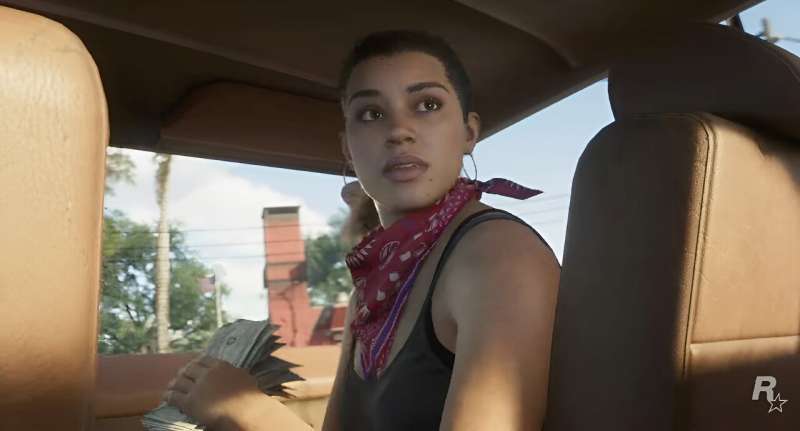This article has been reviewed according to Science X's editorial process and policies. Editors have highlighted the following attributes while ensuring the content's credibility:
fact-checked
reputable news agency
proofread
'Bad buzz': How video games learnt to embrace diversity

The most notorious, violent and often sexist video game "Grand Theft Auto" is finally dropping a playable woman character into its testosterone-fueled world, capping a wider trend towards more inclusivity in the gaming industry.
The pressure is coming from players demanding wider representation and from a new generation of game designers sensitive to the issue.
The result is "Lucia", who featured in a trailer released on Tuesday for the "Grand Theft Auto VI" game that will be released in 2025.
Grand Theft Auto has often been a lightning rod for criticism but the wider industry has hardly been a beacon of light.
Major sex-harassment scandals engulfed video gaming companies Activision Blizzard and Ubisoft in recent years.
And activists have long complained of a lack of diversity among staff at gaming companies and often stereotyped depictions of minorities within games.
The industry, however, has listened and change is coming.
Ashley Reed, lead writer at Respawn Entertainment for the "Apex Legends" game, said the industry was "becoming more aware" of how women in particular were objectified.
She said, "A lot of the people who are working in games now are people who grew up with video games, saw that and said, 'That doesn't appeal to me'."
'Inclusive hairstyles'
Studios desperate to avoid public shaming have begun to employ sensitivity readers to make sure content is respectful to different cultures –- though critics regard them as akin to censors.
The studios are also hiring inclusion managers to promote recruitment from diverse backgrounds and inject more knowledge into their creative teams—Ubisoft began this in 2021.
"My role is really to explain to them how their ideas will be perceived, and how they can avoid falling into traps that can create stereotypes," says Jennifer Lufau, a French video game inclusion consultant.
Lufau, who is also founder of Afrogameuses, an association advocating for better representation of black women in the video game industry, said the major studios are asking themselves real questions about inclusivity.
"The trigger comes mainly from the players," she said.
She cites as an example the "bad buzz" around "Animal Crossing", Nintendo's social interaction game, which rocketed in popularity during COVID lockdowns.
A woman from Denver in the US, Taniesha Bracken, launched an online petition in 2020 when she noticed her black character could not choose to have afro hair.
Tens of thousands joined her and eventually Nintendo changed their options.
"I can't believe it, but Nintendo listened to us," wrote Bracken at the time. "We got more inclusive hairstyles! I cried when I found out."
'Find our difference'
Although big studios have the money and resources, the impetus for change is often felt earlier in the smaller, independent studios.
"You can't compete with the very big studios on their home turf," said Oskar Guilbert of the French studio Don't Nod.
His studio caused a sensation in 2015 with the "Life is Strange" series for its groundbreaking representation of LGBTQ+ characters.
"We have to find our difference, and that's how we found it," he said.
He said the game was rejected repeatedly before Japanese publisher Square Enix took a chance.
Native languages and indigenous peoples are also highlighted by Don't Nod.
Alaskan Tlingit people feature in the game "Tell Me Why" and one of the actors in "Banishers" took lessons in Scots Gaelic to make sure he got the pronunciations right.
But not everyone is happy with the greater sensitivity in games.
British YouTuber HeelvsBabyface went viral in September with a rant about Starfield, a game that allows players to choose their gender and their pronoun.
He accused the game-makers of dragging players away from the immersive world with "pronouns, gender ambiguity" and "current Californian bullshit".
© 2023 AFP



















